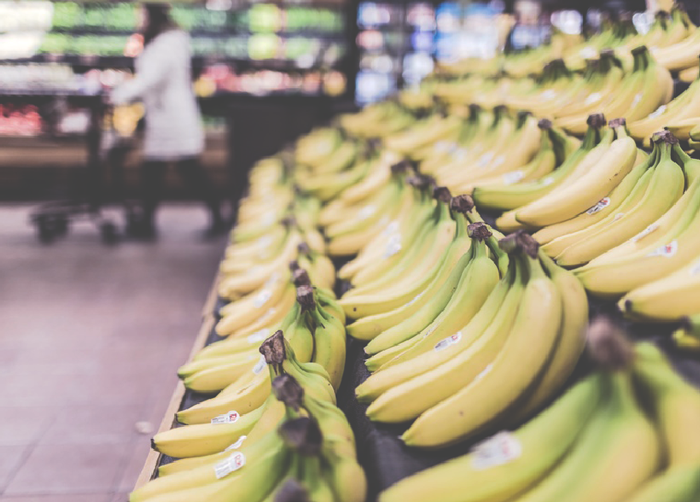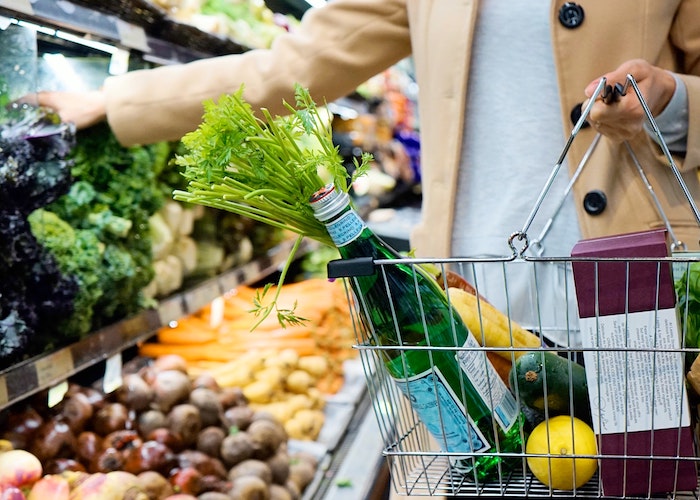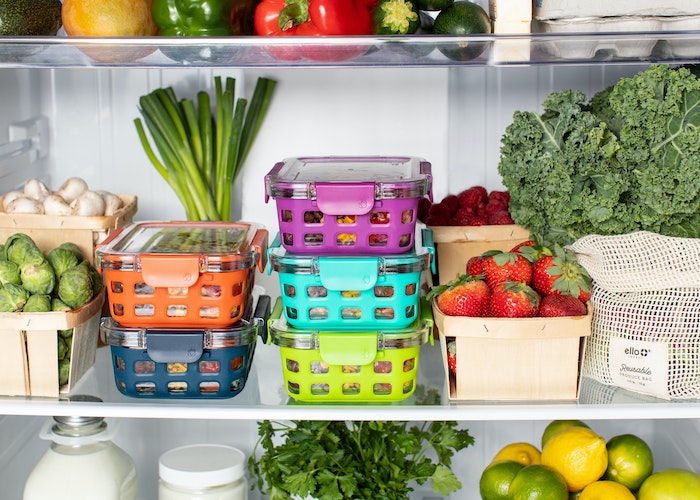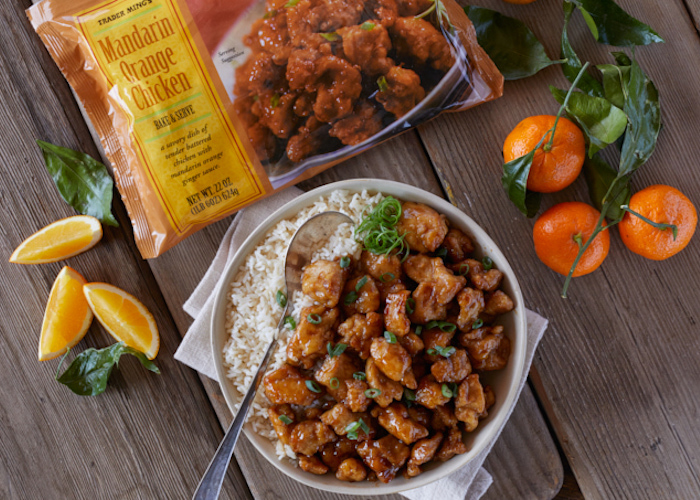TFD’s Rules For Spending Less On Food (And Admitting You Have A Food Shopping Problem)
The other day in our TFD chat, we collectively reached the conclusion that the three of us — Maya, Chelsea, Lauren — have been able to curb and be smarter in our spending pretty much everywhere besides food shopping. And even when we’ve done our best to restrict how much we go out, and to be smarter when we actually go to bars and restaurants, the grocery store is still ground zero for terrible financial decisions.
And given that TFD’s new office (!!) is now located a mere two blocks from one of the sweetest grocery stores in all of New York City, it’s gotten even harder to not make a quick trip for paper towels and come out with bags full of honeycrisp apples, whole wheat pasta, delicious-looking cheeses, and upscale crackers. It’s just such a happy place, and because everyone has to eat, it’s extremely easy to justify your spending there in a way you couldn’t, say, at a shoe store. You can almost trick yourself into thinking that there is something noble about spending way too much on food as opposed to other goods, when if you think about it, investing in quality pieces for things like clothes or furniture is definitely a more intelligent place to put your money than yet another bag of sweet, sweet Tate’s cookies.
So we compiled a non-exhaustive list of how to tell you have a food shopping problem, and how to actually work on shopping smarter. We’re all keeping each other accountable for our grocery choices, and hope you’ll join us on our journey to stop self-destruction via bulk olives.
How To Know You Have A Food Shopping Problem
- You constantly have things going bad in your fridge.
- You buy $9 salad dressings because of the fancy, well-designed label.
- You justify expensive, gluten-free/vegan organic baked goods because you just want to “try them.”
- You both buy fancy granola, and buy ingredients to make your own, because both tempt you equally in their own way.
- You eat meat with most home-cooked meals, as if it weren’t expensive and bad for the environment.
- Because it’s the fall season and who doesn’t need apple butter, pumpkin coffee, mini gourds, cinnamon spice cake, and five pounds of apples (for baking of course!) along with six different holiday coffee creamers.
- You shop for the kind of cook you want to be, not the cook you actually are, and you buy way too many ambitious items you don’t know what to do with.
- You suddenly realize your cheese selection is not fit to entertain guests at a moments notice, so you throw in a couple blocks to have on hand like any “good adult” would do.
- As you’re shopping, you suddenly get the urge to whip up a “treat yourself” cocktail and scope out a couple of fancy drink ingredients that were definitely not on your shopping list.
- You are a sucker for anything that comes in bulk with a scoop. Olives, coffee, nuts, whatever.
- You show up at the grocery store after work, with the intention of buying ingredients for dinner, and end up getting food from the prepared food section because you’re too hungry to wait.
- You buy supplies for and make baked goods in large batches, when you are only 1-2 people actually eating them, so you end up with like 20 muffins to foist on people throughout your day.
- You splurge on something a Pinterest recipe calls for, instead of finding a cheaper substitute.
How To Fix The Problem
- Be smart and plan ahead — when you buy a loaf of bread, or make some of your own, freeze half of it. When you make something in the crockpot
, freeze half of it.
- Buy veggies that you can use in more than one dish. Instead of buying three different vegetables that you might not finish, focus on one thing (like broccoli, arugula, or spinach) because they are versatile and can go in several dishes. This way, you won’t waste anything.
- When buying items that are priced per-item, always make sure to get the biggest (as long as it looks good).
- Map out at least two recipes you want to cook so you aren’t food-shopping blind.
- Focus on things that you buy once to make many meals from, like curry paste
, basic grains, and frozen vegetables.
- When you’re out, order the amount of food YOU want, instead of the amount everyone else orders. Just because everyone gets an app doesn’t mean you have to get one as well.
- Having a small snack ~1 hour before you go out to eat so you don’t sit down and want to order everything because you’re s t a r v i n g.
- If you are splitting groceries with a roommate, or a significant other, make sure you have a system in place in terms of what you split, and who pays for what, so you’re not picking up the entire grocery bill every time.
- Consider finding a local butcher with good prices, and learn to eat on a budget without cutting out meat.
- But work towards the idea of treating meat as a special thing, only cooking it once or twice per week. (And that doesn’t mean having to use meat-replacement products, there are plenty of great ways to treat vegetables as the star.)
- When you find things like good protein on sale, buy in bulk and freeze it.
- Look into the groceries that you can buy online and have automatically delivered on a schedule, so as to not tempt yourself with more frequent trips to the store, where you can get distracted and buy needless stuff.
- Know the grocery stores that trigger your worst spending habits, and only visit them rarely.
- Find starches that can serve as a blank canvas for the extraneous contents of your fridge. Pizza crust, or risotto rice, is a perfect excuse to do something with your leftover chicken and almost-expired shredded cheese.
- See also: quiche. Anything can be made into a quiche, and it’s a great use for those eggs that often go unused.
- Get to know your produce section well, and shop on sale there more than anywhere else.
- Don’t go to the grocery store on an empty stomach.
Stay strong, shop well, and don’t ever hit the grocery store when tipsy from brunch.




